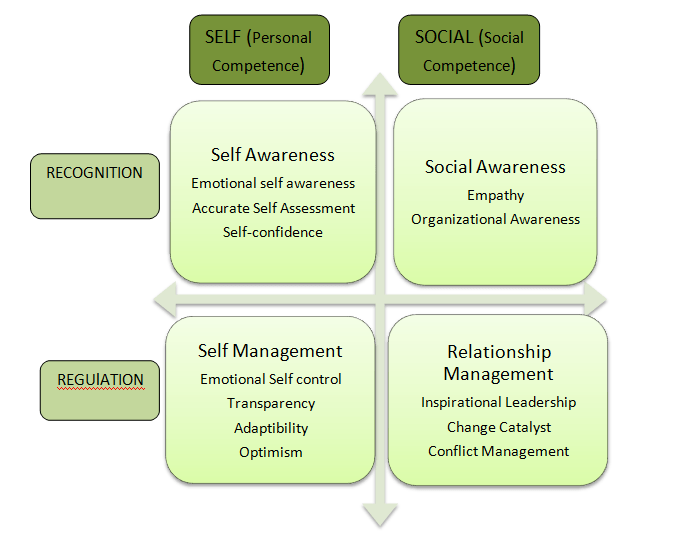EQ And Adaptability: The Human Advantage In A Machine Age
As AI and automation advance, the skills that once defined competitive advantage are shifting. Technical expertise remains essential, but it is increasingly replicable by intelligent machines. What remains uniquely human—and strategically invaluable—are emotional intelligence (EQ), adaptive leadership, and interpersonal capabilities.
For CEOs, this isn't a "nice-to-have." Developing leaders who are empathetic, resilient, and adaptable is now a business necessity. Organizations that fail to invest in these differentiating capabilities risk creating workplaces that are efficient, but brittle—productive, but uninspiring.
Why Emotional Intelligence Matters Now
Emotional intelligence is the ability to perceive, understand, and manage one's own emotions, and to respond effectively to the emotions of others. In fast-changing, high-stakes business environments, EQ directly affects:
- Employee engagement
Leaders with high EQ foster trust, loyalty, and psychological safety. - Collaboration across boundaries
EQ enables effective teamwork across cultures, geographies, and disciplines. - Conflict resolution
Emotionally intelligent leaders navigate tension productively, reducing disruption. - Change management
Empathetic communication reduces resistance and accelerates adoption.
Automation may optimize processes, but EQ optimizes people—making it a critical differentiator in talent-driven organizations.
Adaptive Leadership: Thriving Amid Disruption
Where EQ is about connection, adaptive leadership is about resilience. Adaptive leaders:
- Anticipate and embrace change
They view disruption as opportunity, not threat. - Experiment and iterate
They encourage teams to test, learn, and adapt. - Balance stability with flexibility
They provide clarity while empowering innovation. - Stay grounded in purpose
In uncertain times, they anchor decision-making in shared values.
These qualities cannot be automated. In fact, they are amplified by environments where machines handle routine tasks, freeing humans to lead through complexity.
Soft Skills As Strategic Skills
The term "soft skills" often underplays their importance. Increasingly, these are better described as power skills or human skills. Research consistently links them to bottom-line impact:
- Sales and client success
Empathy improves listening, solutioning, and relationship-building. - Innovation
Psychological safety enables creative risk-taking. - Retention
Employees are more likely to stay in organizations where leaders demonstrate care and adaptability. - Reputation and trust
Stakeholders reward organizations perceived as ethical, inclusive, and human-centered.
In short, developing these skills is not a cultural initiative—it's a strategic lever for performance.
Why CEOs Must Lead This Agenda
L&D can design programs, but CEOs and C-suites must model and reinforce emotionally intelligent, adaptive behaviors. Their role includes:
- Setting expectations
Make EQ and adaptability core leadership competencies, not optional extras. - Allocating investment
Fund leadership development focused on these areas as heavily as technical training. - Modeling behavior
Demonstrate empathy, resilience, and flexibility in daily interactions. - Embedding into culture
Align hiring, performance reviews, and succession planning with soft skills benchmarks.
Case Examples: EQ And Adaptive Leadership In Action
- Technology company
Developed an "empathy accelerator" program for managers, improving employee engagement scores and reducing attrition by double digits. - Global logistics firm
Trained leaders in adaptive decision-making during supply chain disruptions, leading to faster recovery and stronger customer trust. - Healthcare network
Invested in resilience training for leaders during the pandemic, reducing burnout and maintaining high-quality patient care.
These cases highlight a truth: when leaders lead with empathy and adaptability, performance follows.
Building L&D Programs That Develop Human Skills
Unlike technical skills, soft skills cannot be taught solely through eLearning modules. Effective approaches include:
- Experiential learning
Simulations, role-plays, and scenarios that require emotional engagement. - Peer coaching and feedback
- Building self-awareness through structured reflection.
- Storytelling and case studies
Demonstrating real-world examples of empathetic, resilient leadership. - Mentorship and sponsorship
Reinforcing learning through ongoing relationships. - AI-augmented practice
Leveraging AI for safe role-play practice in coaching conversations or conflict resolution.
These methods emphasize not just knowing, but doing and becoming.
Challenges Leaders Must Navigate
- Measurement difficulties
Unlike technical skills, EQ and adaptability are harder to quantify. Leaders must track indicators like engagement, turnover, and team performance. - Cultural resistance
In some organizations, soft skills may be undervalued. CEOs must reframe them as strategic. - Time investment
Developing these skills requires reflection and practice, not just quick interventions. - Consistency across levels
EQ must be cultivated not only in executives but across all people-leaders.
The Human-Centered Leadership Road Map
- Assess current leadership capabilities
Use 360 assessments, engagement data, and feedback to diagnose gaps. - Define strategic priorities
Identify which human skills most directly drive performance in your industry. - Design multimodal programs
Combine workshops, coaching, and technology-enabled practice. - Embed into talent systems
Align hiring, promotion, and performance metrics with EQ and adaptability. - Model at the top
CEOs and executives must consistently demonstrate emotionally intelligent, adaptive behaviors.
Conclusion: Leading With Humanity In A Digital Age
As intelligent machines proliferate, organizations face a paradox: the more we automate, the more we must double down on the human. Emotional intelligence, adaptive leadership, and resilience are no longer peripheral leadership traits—they are the strategic differentiators that determine whether organizations can inspire, retain, and mobilize their people in times of disruption. For CEOs, the call to action is clear: invest in human-centered leadership now. In a future defined by machines, the leaders who thrive will be those who stay deeply, authentically human.








